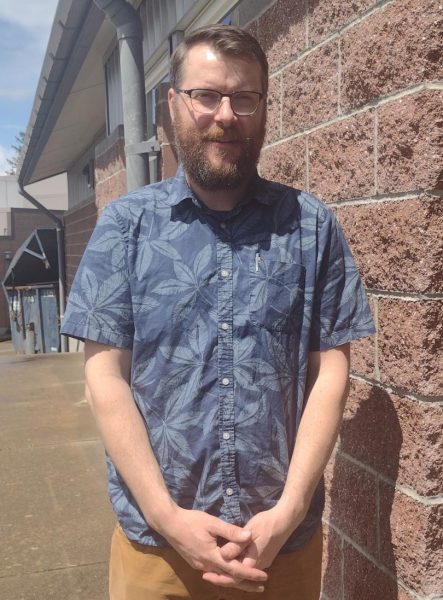Our current community at CHS could be aptly described as Isolated and Introverted, less of a collective and more of a collection. In a post-COVID CHS, most of the change enacted towards strengthening our community has felt performative. Some good examples of this are the state-mandated social-emotional learning time, which is a good idea but in execution just leaves students wasting their time, or the limited 30 minutes we get of club time once a month. CHS is still full of diverse individuals and groups. It would be disingenuous of me to label all of them as isolated and introverted, but there is a clear sense of this.

For this article, I interviewed David Wall, an art teacher here at CHS, about the community. Wall stated that CHS “is full of great individuals, but I have to do a lot to get people together.” A heavy part of my interview and this article as a whole was focused on how CHS as a community dealt with COVID. The school and staff have pushed for change mostly focused on how isolated the community is. “Students are more comfortable with separation.” We can’t have a healthy community without students engaging and collaborating, at least not a progressive one. With the stagnation of these collectives, CHS has attempted to fix this issue by increasing programs, clubs, etc. “There are a lot more activities that folks can engage in together.” This type of solution is problematic, however, as it is not the volume of opportunities that limit our community, it is time. “Time is the issue, a lot of options is good. Everyone can find a home, but not providing time doesn’t get people to engage.“ The pre-COVID CHS community is gone. No students who were at CHS before COVID are still here, and only the staff remain to remember what life was like here at CHS.
The students are the largest group of people in the CHS community, but since the staff and the school are the base of all change, most student action is a reaction to their decisions. The post-COVID solution taken by the school and the staff increased “mental health talks and awareness” but did not address how to progress after COVID. The ultimate problem here is time. We spend too much of it focused on the past, CHS before COVID, well ignoring that in the present no student has ever experienced that. In our rush to return to a past most of us have never experienced, we run out of time to strengthen the community and reflect on how COVID affected us on an individual, and a communal level. Wall articulated this idea very well, “I don’t think anybody, including the staff, did enough personal reflection to process COVID. It was traumatic coming back and we haven’t had time to consider that and move on.” Is it better to dwell on a past that the student body never experienced? We need to manage our time more effectively or we will continue to stagnate. The focus needs to shift or the community will face further avoidable challenges in the future.
